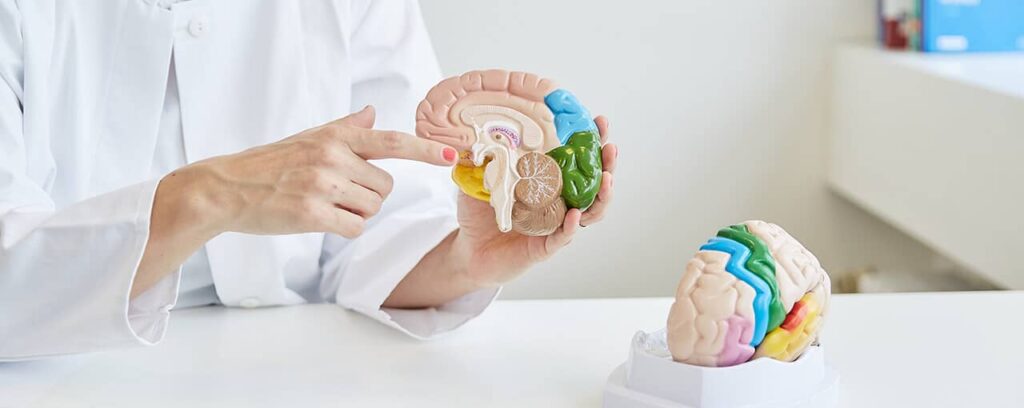Concussions in (Sports) and Craniocerebral Trauma
Concussions and craniocerebral trauma can affect all people in falls, accidents or blows to the head. Athletes who play contact sports (soccer, field hockey, boxing, etc.) are at high risk (and also recurrent risk) of head injuries particularly concussions from blows to the head or collisions. Head injuries and suspected concussion should always result in cessation of sport and immediate medical evaluation at the hospital.
Incident for Concussion or Traumatic Brain Injury
The following complaints should result in further evaluation:
- Consciousness, “twitching”/epileptic seizures
- Blurred vision, double vision
- Confusion, memory problems
- Dizziness, “not feeling well”, Nausea
- Difficulty concentrating, sleep problems,light/noise sensitivity
- Headaches
- All types of neurological deficits (tingling, numbness, paralysis, speech problems
After medical evaluation in the hospital/for milder cases possibly as an outpatient (if imaging is possible), the patient should rest. Even after a concussion, further neurological problems may occur for days to weeks (e.g., sleep disturbances, concentration problems, headaches, depression, dizziness, etc.). In these cases, you should seek medical attention to initiate temporary treatment of the symptoms with medication, if necessary, and to discuss the extent to which you may/should return to physical activity. If the symptoms persist for a longer period of time, this is referred to as a “postconcussion syndrome”. An individual therapy after a concussion can accompany you during this phase.
Return to Play after a Concussion
For athletes, there are now precise guidelines on how quickly they may return to training stepwise after a traumatic brain injury (“return to play”). Here you are in good hands with us in Munich. In addition to a neurological examination, and if necessary a measurement of the brain waves, we also carry out a neuropsychological examination to determine where problems still exist. For “high-risk” sports, we also offer teams to come in for a “basic examination” before the start of the season. This includes a neurological and neuropsychological examination, balance measurements and the performance of brain waves. In the event of a concussion, these serve as the basis for further assessment of the course of action.

